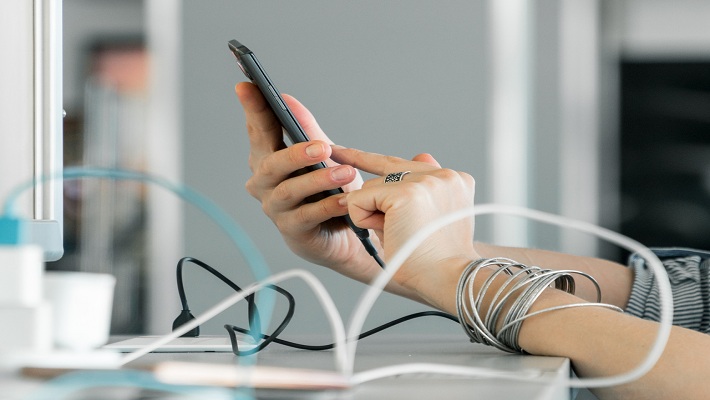
Smartphones have become an essential component of our everyday lives in the age of contemporary technology. Because of our increasing reliance on these gadgets, there is a continual demand for charging. Unfortunately, charging our phones in public locations also comes with a hidden risk: Juice Jacking. This cunning swindle preys on the unwary, jeopardizing their privacy and security.
When a phone is hooked into a public charging station, hackers employ juice jacking to obtain access to sensitive data, such as financial information. As the number of public charging stations rises, this is becoming a major worry. As a result, it is critical to be aware of the hazards of juice jacking and to take action to safeguard your personal information. Hackers employ malicious USB cables or other devices to intercept data sent when a phone connects to a public charging station. Passwords, financial details, and other sensitive data can be stolen if the hacker gets access to the information.
While it is critical to be aware of the dangers of juice jacking, it is equally critical to note that the odds of becoming a victim of this sort of assault are extremely rare. There are some steps you may take to secure your data, such as only using trusted USB connections, not charging your phone at public charging stations, and not using your phone while it is connected to a public charging station. However, some people are more vulnerable to juice jacking than others. People who use their phones for business or travel frequently, for example, are more likely to be targeted by attackers.
Understanding Juice Jacking: A Stealthy Cyber Threat
Juice Jacking is a deceitful activity in which fraudsters steal personal data and infect devices with dangerous software by exploiting public charging stations. The perpetrator usually tampers with USB charging stations or provides fraudulent charging cables with data-stealing capabilities. The cybercriminal acquires illegal access to the device when an unwary user connects their phone to the hacked charging port.
The methods used in Juice Jacking vary, however, the most frequent approach is data transfer through a USB connection. The attacker can use this method to not only access personal information saved on the device, but also to install malware or extract sensitive data such as login passwords, credit card information, and contact information.
Vulnerable Venues and Targeted Users
Juice Jacking scams are most common in high-traffic areas like airports, coffee shops, hotels, and public transportation hubs. These locations attract a large number of people looking to charge their devices, making it simpler for hackers to blend in and carry out their fraudulent operations unobserved.
Furthermore, Juice Jacking assaults frequently target vacationers and professionals. Frequent fliers and business travellers are more inclined to seek out charging stations at airports and hotels, and their gadgets are frequently filled with sensitive corporate and personal data, making them attractive targets for hackers.
Precautions and Mitigation Strategies
As the possibility of Juice Jacking grows, users must take precautionary precautions to protect their devices and critical data. Here are some important precautions to take:
Avoid Untrusted Charging Stations: Stick to official charging stations provided by reputable establishments or use your personal charger and wall socket. Refrain from using random charging kiosks or cables left unattended in public areas.
Invest in Portable Power Banks: Carrying a reliable power bank allows you to charge your device without connecting to public charging stations. Choose power banks from reputable brands to ensure their safety and effectiveness.
Disable Data Transfer: Modify your phone settings to disable data transfer when connected to a computer or charging station. This precaution ensures that even if you accidentally connect to a compromised USB port, your data remains safe.
Juice Jacking is a modern-day cyber danger that takes advantage of the ease with which we may charge our iPhones in public locations. Cybercriminals employ a variety of methods to steal sensitive data and endanger our privacy. Understanding the hazards of Juice Jacking is critical to avoid being a victim of this deceptive fraud.
We may reduce the hazards connected with Juice Jacking by being cautious and following preventive steps such as utilizing trustworthy charging stations, investing in portable power banks, and installing security settings on our devices. Finally, in this technologically advanced world, safeguarding our personal information and securing our cell phones should remain a top priority.







